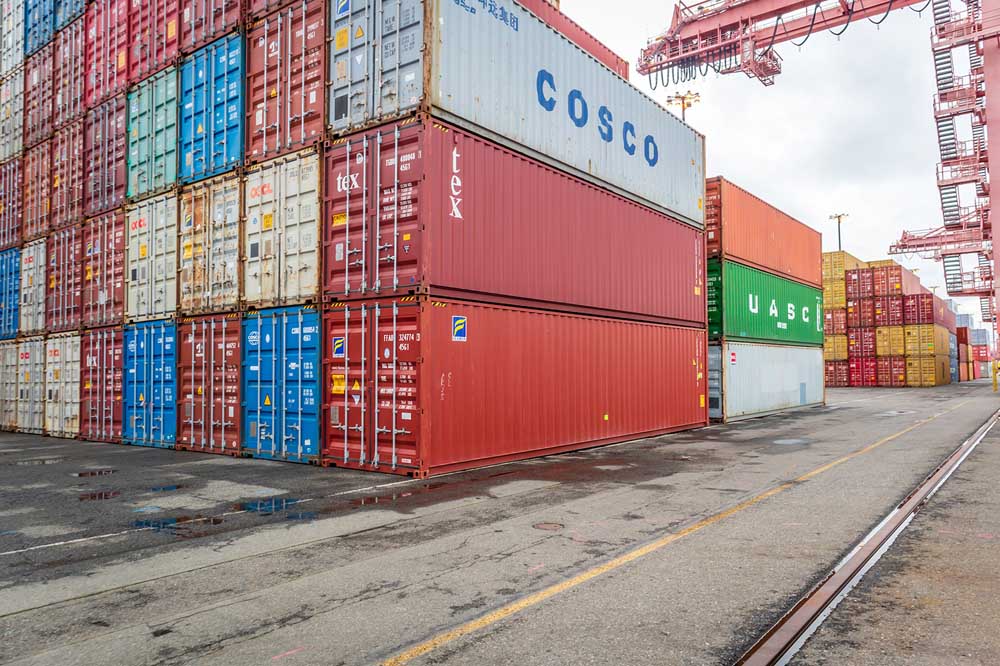Senate panel passes shipping bill to aid farm exports
Published 10:45 am Tuesday, March 22, 2022

- Containers are stacked at the Port of Seattle. The ports of Seattle and Tacoma are significantly less congested than a year ago, due to increased infrastructure and decreased global shipping volumes.
The U.S. Senate Commerce Committee on Tuesday passed legislation to give the Federal Maritime Commission more muscle to lean on foreign shipping companies to export U.S. farm goods.
The bipartisan Ocean Shipping Reform Act directs the commission to bar shippers from “unreasonably declining” to haul agricultural products. The commission would have to write a rule defining “unreasonable.”
“This is the top ask by American exporters whose products have been left on the docks,” said committee Chairwoman Maria Cantwell, D-Wash.
Democratic and Republican senators from farm states complain ocean carriers are stranding agricultural goods at West Coast ports in their rush to go back and pick up more goods for the lucrative “front haul” from Asia to the U.S.
The House passed a similar bill in December to give the maritime commission more authority to demand shipping companies justify their hauling practices. The shipping industry says the bills are flawed and shift blame for land-side logistical snarls onto ocean carriers.
Washington State Potato Commission director of government relations Matt Harris said the commission supports the bills.
Growers have flown or trucked potatoes to customers and far-flung ports as exporting from the West Coast becomes more difficult, he said. “We’re seeing products stymied by the inability to move to Asia through the ports,” he said.
The World Shipping Council, which represents international carriers, warns the reforms contemplated by federal lawmakers will make supply-chain problems worse.
The shipping council says COVID disrupted port operations while also driving a stay-at-home shopping surge by U.S. consumers. As a result, import cargo containers crowded ports, according to the council.
The shipping companies complain they’re being asked to do the impossible: Quickly take away empty containers while also taking away loaded containers.
Harris said growers are squeezed because the ships “grab and go,” shortening the time farmers have to get potatoes into congested ports and positioned for export. Ships won’t wait, he said.
“We’re just the ‘back haul,’” Harris said. “We’re not causing the container to move.”
The shipping council says ocean carriers are committed to serving U.S. agriculture. The council notes that U.S. farm exports have risen to record levels since COVID hit. The USDA predicts that 2022 will be another record year.
That is based on dollars. The volume of major commodity exports declined in 2021 and is expected to decline again this year, according to the USDA. “Prices have gone up, volumes have shrunk,” Harris said.
Cantwell’s committee held a hearing March 3 on the shipping reform act. Federal Maritime Commission Chairman Daniel Maffei agreed the commission needs more authority, but warned against too much regulation.
Making ocean carriers meet export quotas may cause them to avoid export ports, he said.
Nine shipping companies — which have grouped themselves into three alliances — dominate ocean-going trade between Asia and the U.S. Cantwell accused them of taking advantage of their market domination.
“The issue is they’re making bank and then leaving our products on the dock. That’s exactly what is happening,” she said. “It can’t be a one-way street. We can’t have our products left on the docks.
“We are going to pass some legislation here. We are going to fight for these shippers who need to get their products to international markets,” Cantwell said. “I will make this the biggest priority of this committee if that’s what it takes.”






